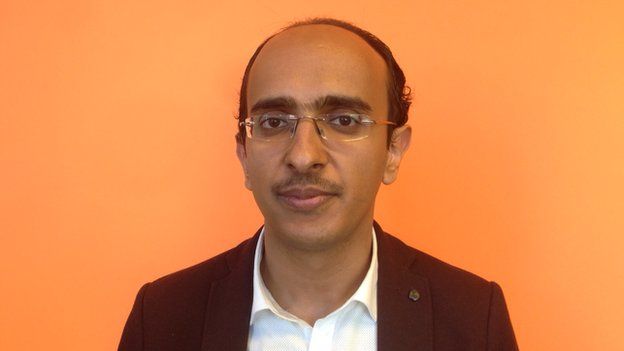If Yemen’s UN envoy wants peace, he should speak to more Yemenis
a Yemeni human rights activist.
The UN envoy to Yemen, Ismail Ould Cheikh Ahmed, has just concluded a European tour, apparently meeting senior officials in London, Paris and Berlin before flying to Abu Dhabi to meet the Emirati foreign minister.
Like many Yemenis who are trying to find a glimpse of hope in the middle of a bloody conflict that keeps claiming more civilian lives, I follow these tours closely through Twitter. Of course, these days, I have to log out of my personal account because he blocked me last January when other Yemeni activists and writers and I asked him to visit Taiz.
But when you do look at his Twitter account, you’ll see that he has been negotiating the peace in Yemen with the UK, Germany, France, Saudi, Emirates, Oman, Qatar and even Iran – everyone but local actors on the ground and inside Yemen.
The envoy’s movements reflect how the international community perceives the conflict in Yemen – as a proxy war between regional players who choose Yemen as a battlefield. The Saudi-led intervention, which began two years ago this week, gave the conflict a regional angle but this is not the reality on the ground. The conflict started – and still is between – local Yemeni powers.
Saleh’s power grab
The war started at least six months before Saudi’s intervention. In September 2014, the Houthis – a rebel group in the north of the country – managed to form an alliance with former president Ali Abdullah Saleh – who ruled the country for 33 years and was ousted as a result of the Arab Spring movement in 2011.
With the Houthi’s help, Saleh staged a coup and managed to bring his opponents and the government down. The collapse of the central government led to the collapse of the transitional process which fuelled the conflict.
Although Saleh stepped down from the presidency in 2012, he never really left power. The country was effectively run by two presidents: Abd Rabbuh Mansour Hadi, a weak legitimate president with no control over the military, security or intelligence services, and Saleh, a former dictator still in control of those forces.
Under Hadi, who came to office in February 2012, Yemen passed through a transitional period. In 2013, Yemen had its National Dialogue Conference which succeeded in concluding in January 2014 with a draft of the new constitution which tackled three key issues. It introduced a transitional justice law, moved Yemen towards a federal form of governance and prevented any former military personnel from running for president – in other words, Saleh and his sons.
These key issues, if voted on, could have helped Yemen avoid the current conflict and prevent the country from being fragmented. But this context is missing from the UN envoy’s agenda.
The UN envoy’s recent plan, introduce last November and backed by former US Secretary of State John Kerry, entailed forming a unity government and appointing a new vice president to be handed power by Hadi. The plan was quickly rejected by the Yemeni government, which may have surprised outsiders but not many Yemenis.
The missing piece in the peace puzzle are the three main points covered in the constitution: the role of the former president, transitional justice and the federal system. But federalism and transitional justice are topics you will only hear if you visit Yemenis inside Yemen. This is a discussion the UN envoy could have if he travelled to Taiz, Aden, Mareb and Hadhramout.
The former UN envoy in all briefings to the UN Security Council emphasised that Saleh should have no role in the future and warned about the role he’s playing to spoil the process. In all discussions around Yemen either politically or in the media Saleh is rarely mentioned
The UN hosted three rounds of peace talks – one in Geneva, one in Biel and the third in Kuwait. The situation in Yemen today is different than it was in 2011, but at least then the former UN envoy spent time meeting people and active players on the ground. He travelled between Saada, Amran, Taiz and Aden.
In comparison, the current UN envoy hasn’t even met the leader of the Houthis in Saada, or gone to Taiz to talk to resistance forces to understand why people are fighting. The UN envoy can have the support of all of the foreign ministers for his mission and peace plan, but only the actors on the ground can bring that peace to reality.
It might be unfair to expect the UN envoy in a conflict like Yemen to bring peace, but he owes it to the Yemeni people to tell the truth to the Security Council and promote their voices instead of avoiding them.
The views expressed in this article belong to the author and do not necessarily reflect the editorial policy of YemenExtra

